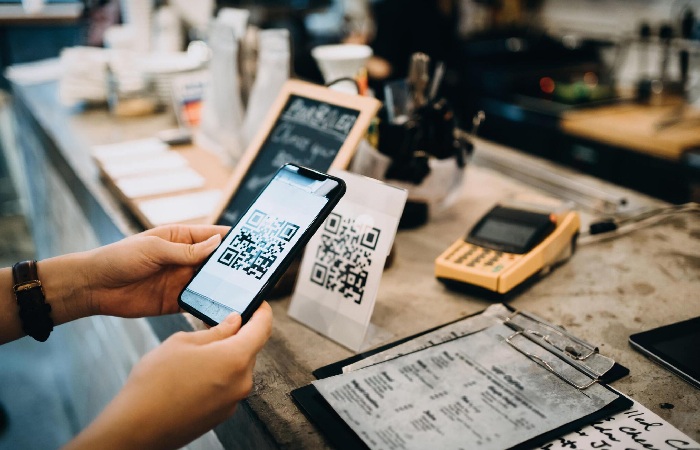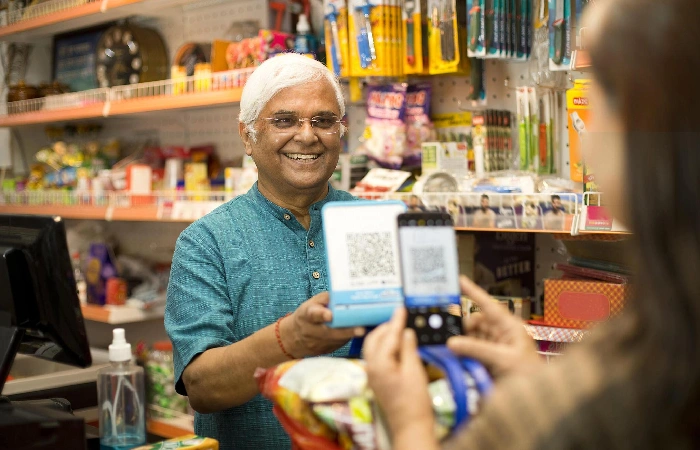Mobile Payment: The potential that technology has to improve the day-to-day of companies is indisputable. However, as time passes, solutions appear, new standards will be imposed, and the market will become even more dynamic and competitive. In this sense, it is necessary to focus on the future, anticipating trends and changes that may impact the market and corporations’ routine, as with mobile payment.
A few years ago, there was almost no talk about this payment methodology, as few companies acted in the niche. However, advances in the mobile market and the evolution of consumer habits have made mobile payments increasingly common, constituting an integrated reality in everyday life, given the ease, security, convenience, and modernity they represent.
With these differences in mind, we prepared this post to show you the essential features of mobile payment and the main reasons that justify the adoption of this financial tool in your business. So, if you doubt whether or not to follow this marketing trend, check out the information we prepared right now and draw your conclusions.
Mobile payment: you need to know this concept

The massive use of mobile devices is one of the most striking features of today, and no one questions this. The number of people who use smartphones, tablets, and other mobile resources daily, and for the most diverse purposes, has been growing exponentially to revolutionize how we interact, communicate, use services, and buy.
In this context, it is natural that people’s patterns and habits evolved to the point that this type of technology became something genuine, a daily practice present in the most diverse segments of society. And that’s precisely what happened with financial and commercial transactions, among which mobile payment will include.
Today, this payment model is one of the main trends in the market since most establishments in different business sectors offer this option. In addition, mobile payment is one of the most common tasks for consumers, especially when shopping online, as it requires simple, fast, and very secure procedures for both parties.
The fact is that, with the virtualization of services, physical money gradually became less used, so using other means of payment, such as the card, has been increasingly frequent. Added to this scenario is the precaution of many customers regarding robberies, especially in medium and large cities. It is because more comfortable and safer alternatives have emerged to replace this role literally.
The Advantages Of This Payment Model
As with virtually everything related to the use of technology, mobile payments represent several advantages for businesses and consumers who use them. Continue reading to learn about the main ones.
-
Versatility
One of the most striking points of mobile payment services is their versatility for whoever trades. In this sense, both companies with a high volume of sales and smaller businesses can modernize their payment systems, reducing bureaucracy, delays, the effort with carrying out collections, and, in some cases, even default.
This payment format streamlines procedures within the corporation, making them more efficient and improving the quality of transactions. This versatility is also an attraction for customer loyalty, who can see this method as a differential of the company that offers it.
-
Optimized Customer Experience
Another point about mobile payments that deserves to be highlighted is the positive reinforcement added to the consumer experience. For a long time, completing an order, especially online, was synonymous with bureaucracy, registration and filling out lengthy forms, and delay in evaluation, which directly and negatively impacted the consumer’s shopping experience.
On the other hand, the current model of mobile payments has done away with all this bureaucracy. By having a service of this nature supporting the company’s commercialization, it is possible to simplify the sales process, offering more agile alternatives so that the customer can make the purchase, sign the documents originating from it and make the payment, all remotely, from a variety of mobile devices.
-
Error Reduction
The reality of the corporate world has become the replacement of manual, slow, repetitive, and bureaucratic processes with automated alternatives based on the use of payment interfaces, which makes this task much more straightforward safer, and almost entirely error-free. In this context, mobile payment helps businesses become more productive and competitive.
Taking into account the volume of business of a company, the savings obtained with this modality tend to be significant. Moreover, with the decrease in expenses, the company can use its capital to invest in its core business, improving its processes and becoming more attractive to customers and employees.
-
Time Optimization
Time is undoubtedly one of a company’s most valuable assets. Therefore, seeking solutions capable of optimizing its use is essential to improve business results. However, as mentioned, in the past, making payments was considered a bureaucratic task for companies, as it depended on the combination of several manual processes and the manipulation of documents in physical format, which made the process relatively slow and complex.
However, this reality was transformed with the emergence and expansion of mobile payment services, eliminating bureaucratic steps, such as signing, sending, and receiving supporting documents to execute transactions. As a result, the time spent with electronic business transactions became minimal in minutes — sometimes even seconds.
With a fully digital appearance, mobile payments save time and money by transferring the responsibility for registering customers, authenticating transactions, and performing collections to the companies that provide this service. In addition, these procedures become more efficient, increasing the productivity of the company that contracts its supply.
Mobile Payment And Its Impact On Consumer Behavior

Whether accessing social networks or instant messaging apps or browsing news sites or entertainment pages, we’ve never spent so much time using mobile devices before. Soon, these electronic devices have become part of the daily lives of a large portion of the population worldwide, impacting how people behave, including when they consume.
Thus, the more users use their mobile devices, the more they get used to its amenities and access different websites, which carry out some commercialization. As a result, people tend to consume products and services via the Internet while using online tools to pay for what they have purchased.
It is where mobile payment comes in as functionality that follows commercial trends and offers technical support and convenience to virtual environment users. As a result, this technology has become a common habit in those who use the internet and mobile devices for consumption activities.
Mobile Payment And Bank Trips
Banks soon noticed the service virtualization phenomenon and began preparing to accompany it. Financial institutions began to invest massively in developing and improving their applications, the so-called Internet banking, an alternative for making mobile payments. There are others, such as the digital wallet, contactless payment, and mobile card reader.
The adoption of digital payment reduces the need for customers and professionals to go to the bank to complete commercial transactions or manage their finances of receipts and settlement of fees, respectively, as this technology allows both to fulfill their financial obligations remotely. In addition, the most diverse types of payment are now available through this format.
The Security And Reliability Of Mobile Payment
Although this belief has been changing over the years, many managers and business leaders still have concerns about mobile payments’ reliability. It is mainly because this technology uses the internet to establish communication between those involved in commercial transactions.
The information that travels on the network at the time of the conclusion of a financial transaction will protect complex encryption systems, which are reliable enough to ensure the total secrecy of the transaction. Furthermore, the data is encoded so that it cannot be tracked, copied, or used by third parties. In addition, everything will do to prevent fraud, intrusion, billing errors, and security risks from occurring.
From this perspective, there is no reason for concern if the available mobile payments will support corporations that operate with reliable encryption mechanisms. The company that uses the technology and its consumers will protect itself from possible problems. It is then up to make the appropriate choice for the company that will provide this service.
What Will Expect Of This Technology In The Future
The constant technological development of mobile devices, such as smartphones and tablets, combined with the continuous improvement of cryptographic encryption mechanisms, has made mobile payment an increasingly secure and efficient solution. It has considerably increased the confidence of companies and consumers using this financial service.
With greater credibility on both sides, the expectation is that mobile payment will be the primary option for most corporations and their customers very shortly. Furthermore, it is estimated that this technology will grow even more, becoming popular to match or surpass the usual means of payment, such as cash and cards.
The Payments Solution
Payments is an exciting and viable solution in the world of mobile payments, developed and marketed by Docusign. It is a technology that provides pre-built integrations with the main gateways — a service that sends payment data to the networks that process it — so that companies can make charges and receive them after the customer has paid off. Soon, Payments will arrive in Brazil.
Finally, there is no doubt that mobile payment is a solution that has come to perpetuate itself in the market. Several advantages confirm that replacing slow and manual payment procedures with automated solutions developed by companies with the know-how and proven experience can optimize the payment processes of your business, leaving all the bureaucracy in charge of those who know how to deal with it.



